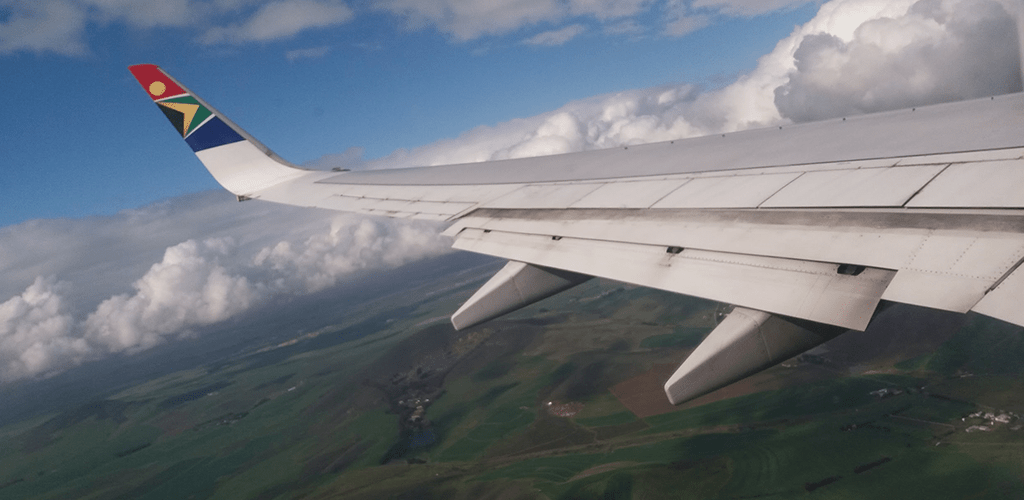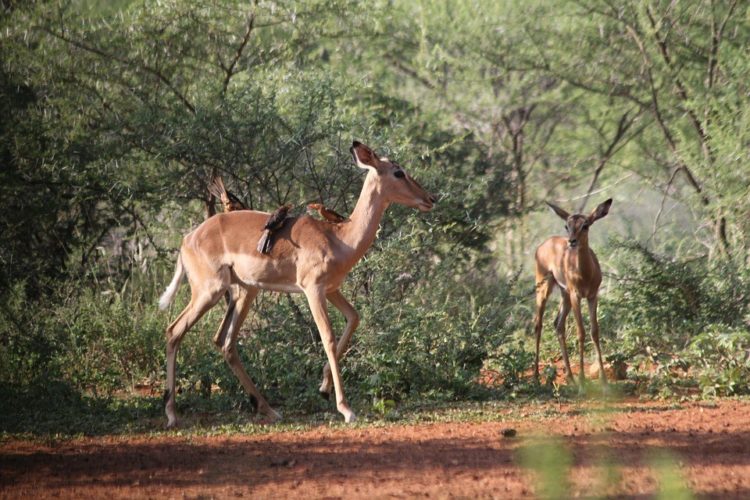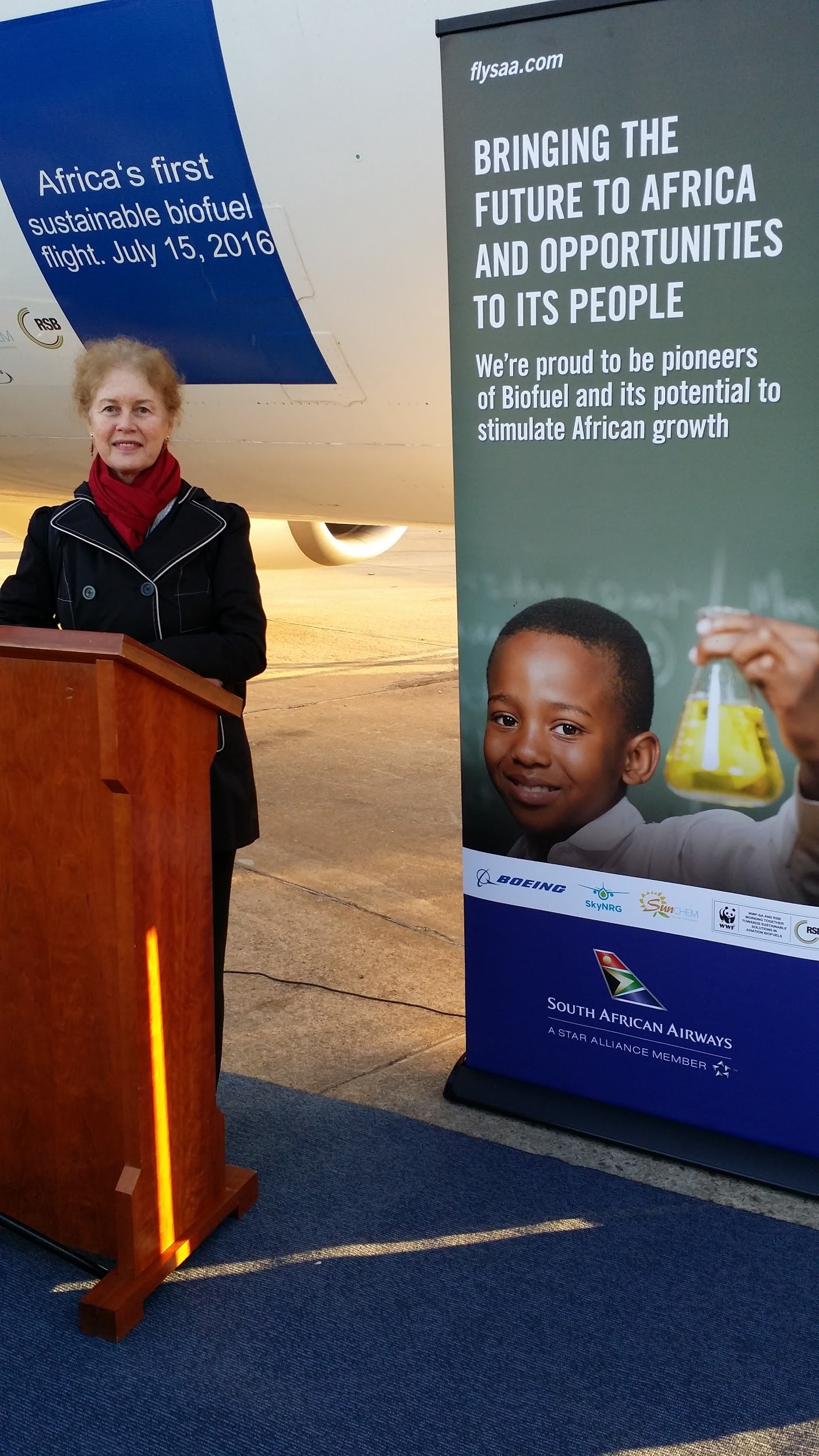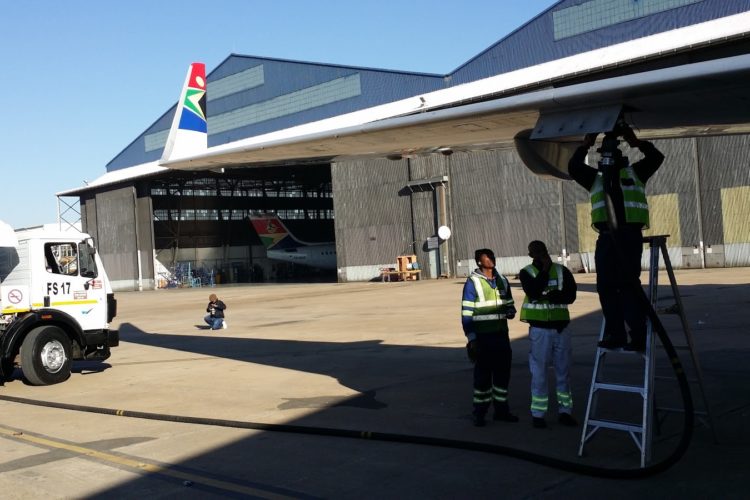We have much more to do and your continued support is needed now more than ever.
South African Airways’ New BioFuel
A Historic Day for Biofuels in Africa

It is no coincidence that the first flight was timed to coincide with national celebrations of Nelson Mandela’s birthday. The biofuel flight also celebrated the 100th anniversary of Boeing and the 80th anniversaries of both South African Airways and the National Wildlife Federation.
Friday’s successful flight from Johannesburg to Cape Town on a Boeing 737-800 is the result of an innovative partnership among the research and development firm Sunchem (developers of the new Solaris seed), Boeing, SkyNRG, SAA and the Roundtable on Sustainable Biomaterials (RSB) – a global collaboration among “bio” industries and social and environmental NGOs. Solaris has been certified under RSB’s voluntary eco-label standards which ensures the feedstock is produced with the proper social, environmental, and ethical safeguards. The certification also requires the biofuel to achieve 50% lower lifecycle greenhouse gas emissions compared to fossil jet fuel. This project encourages a social approach to biofuels and bioenergy production in South Africa.
The First Supply Chain Link
The innovative biofuel feedstock is grown in Limpopo province in northeast South Africa. The region has long been known for its national parks and wildlife reserves including the Waterberg Biosphere, the first region in northern South Africa to be named a UNESCO Biosphere Reserve. This mountainous massif contains several sub-habitats which support a diverse array of flora and fauna, notably the impala, white rhinoceros, black mamba snake, and black-headed oriole. Limpopo will now be known for more than its beautiful wildlife; it will also be home to the first link in an innovative biojet fuel supply chain.

How Can Biofuels Benefit Smallholders?
The most important outcome of cultivating this plant is that it will open new financial channels for millions of smallholders around the world who depend on tobacco cultivation but risk losing their livelihoods as the demand for cigarettes declines. Although Project Solaris is currently focused on expanding to more farmers in Limpopo Province, the long term intention is to make Solaris available in all major tobacco growing countries, including Brazil and Indonesia. RSB is also pursuing other projects aimed at increasing market access for small producers worldwide. These RSB smallholder initiatives, which are supported by Boeing, aim to expand the potential for sustainable aviation biofuels through certified sustainable production of coconut residues, Macauba oil, Gliricidia biomass, and other feedstocks.

NWF’s Barbara Bramble, Vice President of International Conservation and Corporate Strategies, also serves as Chair of the Board of the RSB. She views Project Solaris as a successful pilot of the RSB’s Africa Smallholder Program:
“With new valuable crops, increased yields and market access for crops grown in a sustainable way, millions of smallholders will be able to grow their incomes without having to clear more land. This is the key to sustainable agriculture for the long haul. If the RSB can prove this is true for biofuels and other biomaterials, it can lead the way for other commodities.”
This project signals a new kind of industry collaboration: Sunchem, Boeing, SKYNRG and SAA are all seeking to prove that it is possible to combine business innovation with concern for environmental health and human and social well-being. Airlines hope sustainable biofuels will demonstrate that industry growth and ecological health do not need to be mutually exclusive objectives.
Moreover, biofuels will provide the aviation sector with a lower carbon footprint while avoiding deforestation and conflicts over food, water and agricultural land. Solaris is an example of how biofuel feedstocks do not necessarily exacerbate food insecurity: the plant is grown on land previously used for the production of smoking tobacco, which is not food and cannot be used for animal protein.
Now the land produces a nicotine-free biomass as well as oil seed used for fuel. In addition to the seed residue generated from oil extraction, the leaves and stems provide a variety of livestock feeds. In fact, the proteins are being tested for use in human food as well. All of this reduces the need for additional agricultural expansion.

What’s next for Project Solaris?
This first flight represents one of many steps in a plan to scale-up the use of the biofuel, first in SAA flights, and then to other airlines. The near term SAA supply goals are 200 million litres in 2017 and 400 million litres by 2023. To meet that supply goal Sunchem plans to work with Limpopo farmers to expand production from the current 50 hectares (125 acres) to 30,000 hectares (75,000 acres) by 2020, which has the potential to create 50,000 direct jobs. Negotiations are underway for tests in other major tobacco growing regions.
In addition to increased production capacity, Rolf Hogan, the Executive Director of the RSB, expects comprehensive supply chain certification so that every link in the chain of custody meets strict sustainability criteria:
“We look forward to the next step to get the entire supply chain fully certified in order to really make an impact and reduce GHG emissions for aviation. The great news is this should soon be a reality as the supply chain is expected to be RSB certified later this year. That means we may soon have fully RSB certified SAA flights, which will be a turning point for sustainable aviation.”
Learn MoreLearn more about NWF’s international work and get involved





















